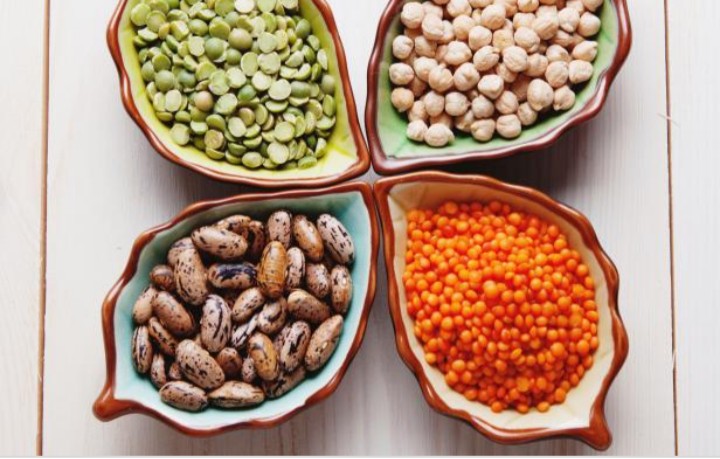By Joyce Mukucha
The Food and Agriculture Organisation (FAO) Liaison Office with the United Nations (UN) in New York in collaboration with Emerging Ag Inc, governments, non-governmental organizations, and all other relevant stakeholders yesterday held a virtual event to celebrate World Pulses Day.
The event which was aimed at raising awareness and recognising the contribution of pulses to sustainable food systems and healthy diets, under the resolution A/RES/68/231 was co-organised by the Permanent Missions of Burkina Faso, Guyana and Malawi to the United Nations, Carolyn Rodrigues Birkett.
FAO and partners reiterated that pulses are more than just nutritious seeds but they are a gateway to the attainment of Sustainable Development Goals(SDGs) as they said 2021 World Pulses Day celebration was an opportunity to reaffirm the contribution of pulses for sustainable agriculture and achieving the 2030 Agenda.
Recognising pulses’ value on 20 December 2013, the United Nations General Assembly (UNGA) under resolution A/RES/68/231 declared 2016 the International Year of Pulses (IYP) with the efforts of Burkina Faso, who proposed the observance, the UN (A/RES/73/251) and designated 10 February of every year as World Pulses Day.
This year’s World Pulses Day celebrations were running under the theme, ” #LovePulses for a Healthy Diet and Planet.”
Speaking during the Zoom Meeting yesterday, FAO Deputy Director-General, Beth Bechdol said pulses play a key role in achieving better food systems.
“Today we celebrate the role of this diverse and versatile commodity in addressing food security and contributing to healthy diets. Pulses are a source of safe and nutritious food for all and also contribute to the sustainability of agricultural production systems,” Bechdol said.
The Permanent Representative of Burkina Faso to the UN, Eric Tiare, emphasized that as the world face climate change and its devastating effects, pulses should be adopted to mitigate environmental threats and to spearhead food security and resilience.
Tiare also highlighted pulses’ high nutritional value and their important role in soil.
“I’m glad that despite the challenges brought by the Covid-19 pandemic, we have managed to collaborate in commemorating this important day. World Pulses Day is a great opportunity to heighten public awareness of the nutritional benefits of eating pulses. They contribute to climate change mitigation and there is need to adopt pulses to protect our climate and as well improving food resilience,” he said.
In his remarks during the same event, President of the United Nations Economic and Social Council and Permanent Representative of Pakistan to the UN, Munir Akram, highlighted the significant role of pulses in reducing poverty, promoting the well-being of people and the planet, and achieving the far-reaching and people-centered set of universal and transformative goals and targets of the 2030 Agenda for Sustainable Development.
In many countries, pulses are part of the cultural heritage and are consumed on a regular or even daily basis because of their nutritional value.
In line with this, the Permanent Representative of Guyana to the UN said it was imperative to eat adequate amounts of pulses, as they are high in protein and fibre and contain important amounts of vitamins.
The virtual event was also graced with representatives from food banks and the industry as well as chefs who contributed in the panel discussion.
Angela Frigo, the Secretary General of the European Food Banks Federation said pulses improve the sustainability of overall food system and help to reduce food insecurity in developing and vulnerable countries.
“They play a critical role in addressing challenges of poverty, food security, soil health and climate change. These species provide many opportunities for improving the sustainability of agricultural production systems,” she said.
She added that pulses help in improving economic growth of Less Economically Developed Countries and should be recalled as an environmentally-friendly source of key nutrients helping to create an affordable, sustainable and nutrient secure present and future.
Chef Ron Pickarski, President Eco-Cuisine, Inc. said pulses are packed with nutrients and have a high protein content, making them an ideal source of protein particularly in regions where meat and dairy are not physically or economically accessible.
“Pulses should be at the centre of our culinary innovation and centre of our plates. They are low in fat and rich in soluble fiber, which can lower cholesterol and help in the control of blood sugar. Because of these qualities, they are recommended by health organizations for the management of non-communicable diseases like diabetes and heart conditions,” said Pickarski.
He also indicated that pulses have also been shown to help combat obesity.
Another chef from South Africa Mokgadi Itsweng choed as said beans and pulses are packed with protein, fibre, iron and nutrients and that they are good for our health and that of the planet and said they are the power food of the African Diaspora.
FAO stressed that pulses play a significant role in as much as food security for farmers is concerned.
“For farmers, pulses are an important crop because they can both sell them and consume them, which helps farmers maintain household food security and creates economic stability.”
When it comes to environmental benefits, other panellists highlighted that the nitrogen-fixing properties of pulses improve soil fertility, which increases and extends the productivity of the farmland.
By using pulses for intercropping and cover crops, it has been highlighted, farmers can also promote farm biodiversity and soil biodiversity, while keeping harmful pests and diseases at bay.
Others pointed out the crucial role pulses play in climate change mitigation by reducing dependence on the synthetic fertilizers used to introduce nitrogen artificially into the soil. Greenhouse gases, they said, are released during the manufacturing and application of these fertilizers, and their overuse can be detrimental to the environment.
Cindy Brown, President of the Global Pulse Confederation concluded the event by affirming that pulses are one of the most varied and exciting parts of a diverse, healthy, sustainable diet.
As the world is living in unprecedented times and grappling to recover, she also thanked Burkina Faso for making the event a success despite the negative impacts of Covid-19 and urged partners to put extra effort and commit and work collectively to increase access to pulses.
Pulses are also known as legumes, are the edible seeds of leguminous plants cultivated for food. Dried beans, lentils and peas are the most commonly known and consumed types of pulses.
Throughout the world, hundreds of varieties of pulses are grown from dried beans, such as kidney beans, lima beans, butter beans and broad beans, to chickpeas, cowpeas, black-eyed peas and pigeon peas.
Researches indicate that pulses have many benefits, and these protein, fibre and mineral-rich leguminous crops are in the spotlight when they are featured in many dishes around the world.
They are a part of the food culture, family traditions and diets of many people across the globe.






